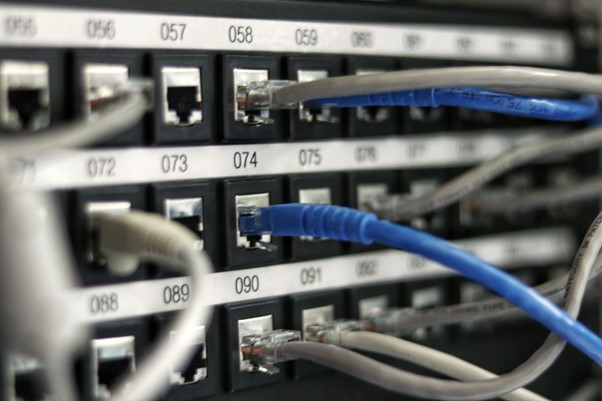indu4.0 AG, headquartered in Zug, Switzerland, aims to address the challenges of the global manufacturing economy and help industry players to enter the digital age. Specifically, the indu4.0 project aims to take the manufacturing industry to a new level of digitalization by implementing blockchain technology and introducing virtual processes. The swiss based blockchain and web3 development studio blokk. has been commissioned to design and code two smart contracts (ERC-20 & ERC-721), marking important steps for the indu4.0 startup to provide first services to their B2B manufacturing industry clients.
Table of Contents
A global marketplace for the manufacturing industry
The platform indu4.0 was founded with the vision to better connect the manufacturing industry. In particular, the 3 founders from Switzerland wanted to enable a significant simplification of supply and demand in the form of a B2B marketplace. According to the indu4.0 founders, trade fairs, catalogs or even classic field service work have long since become obsolete in the industry. The thesis is that digital offers and developments could also be increasingly used by the manufacturing industry to make a significant step in digital transformation.
Thanks to the indu4.0 platform, buyers can find the right suppliers for them and their case in a structured and, above all, time-saving manner. For service providers, the platform is also an ideal way to present their competencies and skills to the market in a simple, transparent, and cost-effective way.
Specifically, it aims to solve some of the most pressing problems that the industry has been struggling with for years. With a new blockchain-based approach as well as a practical industry-specific filtering system, indu4.0 promises to lead the manufacturing industry into the digital world.
On its website, indu4.0 provides detailed information about the project as well as its future plans.
New technologies to solve existing problems in the manufacturing industry
Solving real problems for the industry requires the necessary know-how, which the indu4.0 team definitely has, thanks to their long-lasting working experience in the manufacturing industry. The Co-Founders have lofty goals and a clear roadmap of development steps to solve identified problems and provide customer-centric services. indu4.0 has developed a platform that provides transparency and efficiency in finding new suppliers and potential customers.
The following list of added values is what indu4.0 offers industrial customers in the near future:
- By participating in the platform economy, indu4.0 provides buyers and suppliers with fast and accurate results based on a sophisticated filtering system to find qualified partners.
- INDU – the project’s own cryptocurrency – gives customers access to various services and makes payment transactions more secure. This was solved with a so-called ERC-20 token. More about this is below.
- By actively using the platform, customers are rewarded with INDU tokens (loyalty program).
- By means of an NFT solution (Non-Fungible Token), a secure transfer and storage of documents are enabled, which at the same time provides proof of ownership. An ERC-721 smart contract has been programmed for this purpose.
- Virtual trade fairs in the Metaverse will make it possible to participate in events from anywhere and, for example, to attend presentations of new machines and products in a 3D showroom.
INDU Token – ERC-20 – nature and utility of this security token
ERC-20 is the main technical standard for smart contracts used to implement tokens in the Ethereum blockchain. ERC-20 tokens can be thought of as chips that grant their respective owners access to participate in a digital ecosystem like indu4.0. The INDU token is designed to give indu4.0 customers access to exclusive services and pay for them. More details and specifications of this ERC-20 smart contract can be found on blokk blog post: Industry 4.0: Smart Contracts for the Manufacturing Industry
NFT solution with ERC-721 – application and benefits
ERC-721 is a standard for NFTs. In other words, this type of token is unique and can have a different value than another token of the same smart contract. All NFTs have a uint256 variable called TokenId and for each ERC-721 contract, the pair of contact addresses and uint256 TokenId must be globally unique. This is exactly why this standard is optimal for the case of indu4.0, to use blockchain technology to protect copyrights of own drawings, plans, and ideas. More details and specifications of this ERC-721 smart contract can be found on the blokk blog post.
Concluding remarks and more use cases
As this example of Indu 4.0 shows, smart contracts are a very important aspect of the technical implementation of platforms and applications developed with blockchain technology. The highest code quality and maximum security in the implementation of smart contracts are therefore essential. Through smart contracts, all or parts of an agreement are automatically executed and stored on a blockchain-based platform as soon as the criteria defined in the code are met. Errors and loopholes can accordingly have fatal consequences.
Other blokk projects and cases where the team coded smart contracts to implement the needed functionality are described on blokk website:
- Assembly Curated, a fine art photography NFTs platform
- Startfeld Wallet dApp, enables the transfer of funding packages in the form of Startfeld coins
- Nature Collectibles dApp, allows a fun way to donate to nature conservation
- Elementum, a Swiss-based NFT marketplace for digital arts.
indu 4.0 which uses distributed ledger technologies with the objective to solve existing problems in the manufacturing industry, is nowadays a let’s say pretty exotic approach to how digital transformation can take place in the manufacturing industry since the more obvious boosters of the so-called “industrie 4.0” are; IoT (internet of things), big data analytics, machine learning, and AI, augmented and virtual reality. It would be not realistic to claim that distributed ledger technologies (DLT) will be the main driver for the next industrial revolution but we think that many more web3 and DLT applications will be introduced to test and validate the value of blockchain technology to foster product innovation and digital transformation in general.








